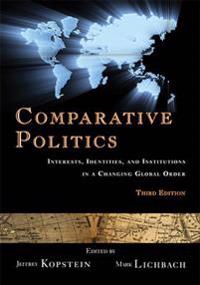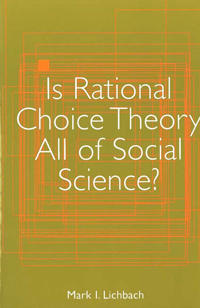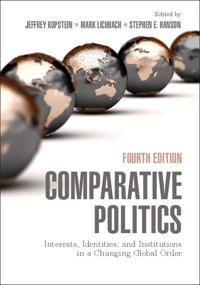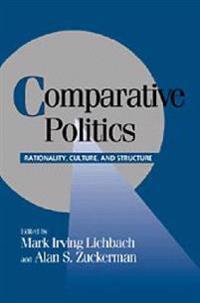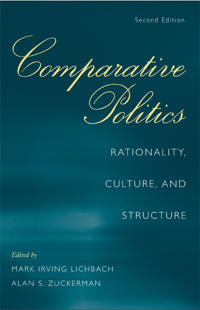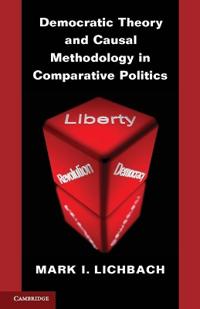Comparative Politics: Interests, Identities, and Institutions in a Changing Global Order (Häftad)
avJeffrey Kopstein, Mark Lichbach
ISBN: 9780521708401 - UTGIVEN: 200807Now in its third edition, this textbook remains a favorite for introductory undergraduate courses in comparative politics.[...]
Is Rational Choice Theory All of Social Science? (Häftad)
avMark Irving Lichbach
ISBN: 9780472068197 - UTGIVEN: 200301Advocates of rational choice theory in political science have been perceived by their critics as attempting to establish an intellectual hegemony in contemporary social science, to the detriment of alternative methods of research. The debate has gained a nonacademic audience, hitting the pages of th[...]
Comparative Politics (Pocket)
avJeffrey (EDT) Kopstein, Mark (EDT) Lichbach, Stephen E. (EDT) Hanson
ISBN: 9780521135740 - UTGIVEN: 2014-07Twelve in-depth case studies of the EU and countries across the globe, written by the leading country specialists and combining insights of cutting-edge institutional analysis and deep study of national histories, explore how the concepts of interests, identities and institutions shape the politics [...]
Comparative Politics (Häftad)
avMark Irving Lichbach, Alan S. Zuckerman
ISBN: 9780521586689 - UTGIVEN: 199708This book reassesses the research schools in comparative politics, assessing knowledge, advancing theory, and in the end seeking to direct research in the coming years. It begins by examining the three research schools that guide comparative politics; rational choice theory, culturalist analysis, an[...]
Comparative Politics (Häftad)
avMark Irving Lichbach, Alan S. Zuckerman
ISBN: 9780521712347 - UTGIVEN: 200902Comparative Politics: Rationality, Culture, and Structure is a completely revised second edition of the volume that guided students and scholars through the intellectual demands of comparative politics. Retaining a focus on the field's research schools, it now pays parallel attention to the pragmati[...]
Democratic Theory and Causal Methodology in Comparative Politics (Häftad)
avMark Irving Lichbach
ISBN: 9781107622357 - UTGIVEN: 201308Barrington Moore bequeathed comparativists a problem: how to reconcile his causal claim of 'no bourgeoisie, no democracy' with his normative 'dream of a free and rational society'. Lichbach harmonizes causal methodology and normative democratic theory, illustrating their interrelationship. Using a d[...]

